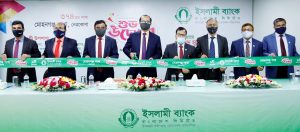Campaigners are increasing the global pressure as reports persist of beatings and safety hazards
• Clare Hutchison
• The deaths of more than 1100 people in Bangladesh helping to supply global brands such as Primark with clothes in 2013 was supposed to be the fashion industry’s wake-up call.
• But three years later, stories of factory-floor beatings and intimidation are again emerging, and countless workers are still sewing up our jeans and T-shirts in sites riddled with structural weaknesses and fire hazards.• That is despite an unprecedented response to the Rana Plaza tragedy, the deadliest disaster in the global apparel industry’s history, in which a complex of structurally flawed factories collapsed. In its wake, some of fashion’s biggest names stumped up compensation and banded together to improve safety.
• “Some people seem to think something like Rana can now never happen, but actually it could easily happen again,” says Sam Maher of the Clean Clothes Campaign. “There is definitely progress but there’s a frustration that everyone has gone back to the ‘It’s not our problem’ mode of thinking.”
• There has indeed been a seismic shift in the way clothing brands do business in Bangladesh. About 190 of them — including Marks & Spencer, Primark, John Lewis and Tesco — are signatories to the Accord on Fire and Building Safety In Bangladesh. A legally binding five-year agreement to improve conditions in the country’s garment industry, it was struck in the immediate aftermath of Rana Plaza.
• Factories are subject to independent inspections while democratically elected health and safety committees monitor conditions, and brands are required to ensure funds are available for necessary repairs. Workers are given training and have access to complaints mechanisms.
• But the accord, only two years away from expiry, appears to have a long way to go to achieve its aims. Its latest quarterly report reveals that just two out of 1600-plus factories have completed all the repairs required under “corrective action plans” and 1182 of those plans are behind schedule. Easily fixed problems such as inadequate fire exits consistently crop up during inspections.
• A major early win, an increase in the number of trade union registrations, has since faded. “As things have gone on, we have seen workers who joined factory unions dismissed, others beaten up on the factory floor and factory management coming to workers’ homes and threatening them,” Maher says. “Ultimately after three years, the brands have to be stepping in and saying: ‘Get this done or we can’t buy from you any more’.”
• Primark says that alongside its work with the accord and a compensation and support scheme for those affected by Rana Plaza, it employs its own expert civil engineer, who belongs to a 12-strong “ethical team” based in the capital, Dhaka. However, a spokeswoman adds: “We are working with our partners in Bangladesh to improve further factory safety and working conditions and we recognise that more needs to be done.”
• Tesco also has a team of experts there and has been among the quickest to make improvements, while M&S highlights its worker training programmes. H&M is playing an “active role in improving fire safety” and will work closely with the IndustriALL Global Union to speed up remediation, UK sustainability manager Catarina Midby says. John Lewis says it remains committed to the accord’s work and all emphasise strict requirements of suppliers worldwide.
• H&M is one of few brands to have published a list of its suppliers around the world, including those in Bangladesh. The move has won it plaudits for its transparency but has also laid bare the state of the factories in its supply chain. The retailer has become the lightning rod for criticism after an analysis by Clean Clothes, the International Labor Rights Forum, the Maquila Solidarity Network and the Worker Rights Consortium showed that 55% of its 32 “most strategic” Bangladeshi suppliers do not have fire doors and enclosed stairwells.
• Clean Clothes’ UK arm, Labour Behind the Label, picketed the retailer’s Oxford Street store this week and along with like-minded organisations, will launch a campaign to coincide with its annual general meeting next month. They argue that the Swedish firm has a duty to do more as a market leader and an early signatory to the accord. – World News Report via EIN News




